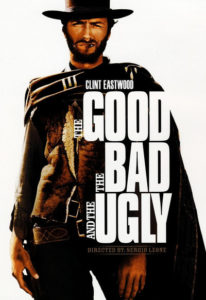
Today, in an effort to switch up my fitness pattern, I went back to a routine I’ve tried a few times in the past. The Burpee Challenge. It’s uncomplicated and requires no equipment, other than a timer. Simply perform 100 burpees as fast as you can.
It took me 19:04.
Is that time good or bad?
Many of us fall into the trap of judging ourselves. Self-criticism occurs even when doing something inherently positive, like exercising. The process goes something like this. “My performance was sluggish. Back when I was in shape, I did this same challenge in 12 minutes. 19:04 sucks. I need to get better.”
Buddhists describe this type of internal dialog as pervasive suffering. It’s generally regarded as the most nefarious type of suffering because it’s hard to detect in ourselves and wholly manufactured. The Buddha taught that understanding the cause of suffering doesn’t necessarily lie in specific events or circumstances, but in the way that we perceive and interpret our experience as it unfolds.
That concept manifested itself as I thought about my workout.
Ten years ago, I would have looked at my result and imagined all the ways it wasn’t as good as it should have been.
Today, my thought process doesn’t include labels about the relative merits of how long it took or how I performed, but rather, my ability to pay attention to the experience itself. And enjoy it.
My recent practice is to recognize experiences that my mind labels as ‘difficult’, like doing 100 burpees, and lean into them with curiosity and compassion instead of fear or self-criticism. In Buddhist parlance, this can also be described as Wise Understanding, the first step on the eightfold path.
The meaning and nature of any event, what is judged to be “good” or “bad,” is only relative to the constantly changing circumstances surrounding it. Once you move past good and bad you become less concerned about outcome. You become more attuned to the actual experience of experiencing. Only then can you begin to see life as it actually is, instead of the story we constantly tell ourselves about how it is.
 This concept is illustrated beautifully by the Zen parable, “The Farmer and The Horse”.
This concept is illustrated beautifully by the Zen parable, “The Farmer and The Horse”.
A farmer had only one horse. One day, the horse ran away.
His neighbor said, “I’m so sorry. This is such bad news. You must be so upset.”
The farmer simply replied, “Who’s to say what is good and what is bad?”
A few days later, his horse came back with twenty wild horses following. The man and his son corralled all 21 horses.
His neighbor said, “Congratulations! This is such good news. You must be so very happy!”
The farmer simply replied, “Who’s to say what is good and what is bad?”
One of the wild horses kicked the man’s only son, breaking both his legs.
His neighbor said, “I’m so sorry. This is such bad news. You must be so upset.”
The farmer simply replied, “Who’s to say what is good and what is bad?”
The country soon went to war, and every able-bodied young man was drafted to fight. The farmer’s son was spared, since his broken legs prevented him from being drafted.
His neighbor simply said, “Who’s to say what is good and what is bad?”

